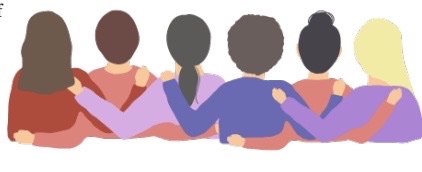When you hear the name ‘Karen’, what comes to mind first? Is it the signature haircut, the grating tone of voice, or perhaps the image of an entitled, middle-aged woman? The name Karen has been around for a while but in recent years the name has become a widespread meme.
“The widespread meme references a specific type of middle-class white woman, who exhibits behaviors that stem from privilege.” (BBC)
The popularity of the meme has become more popular over the years, fueled by numerous recorded confrontations captured on phones and shared across social media highlighting encounters with individuals often referred to as “Karens”
While I’d like to say that in the East there aren’t any people of this sort, I can’t because that would be a lie. Although I am not a parent, there are some things I have experienced with parents that I would never do.
I’ve seen a woman come out of her car and pound on a student window who is parking on San Lu Rae as lunch ends. According to her, she was going to call the police because the car was parked a little too close to her driveway. I’ve seen parents use social media to attack and harass teens. Plenty of times there are encounters at restaurants where “Karens” expect special privileges or services and demand to speak to the manager if something doesn’t go their way. The most common instance I see is older women getting into verbal debates with other parents. I’ve heard screaming fights at clothing stores, athletic games, gas stations, grocery stores, and many other places.
While it’s true that teenagers aren’t perfect drivers and don’t always make the wisest choices, there are occasions when parents must stay alert, even if it means being assertive like a “Karen”, to ensure the safety of their own children or others.
The Medium effectively encapsulates the common characteristics observed across all instances involving Karens – “If someone they perceive as being lower-status denies them what they believe they are entitled to, Karens stereotypically use false victimhood as a weapon, pulling out their Karen tears around authority figures and either exaggerating or lying about how they were abused or treated inappropriately. When held accountable for their behavior, Karens will often claim to be the real victims and will accuse their victims of being the aggressors.”
With all this being said, if you haven’t figured out how to not be a Karen here’s my teenage parenting advice on how to NOT be a Karen.
- Practice having Empathy and Respect: Before reacting to a situation take a minute to consider the perspective and feelings of others involved. Treat everyone with kindness and respect regardless of their status or position.
- Avoid Entitlement: Recognize that entitlement can lead to demanding behavior that is unfair to others. Instead of expecting special treatment, approach situations with humility and an understanding of shared spaces and resources.
- Communicate Constructively: When faced with a disagreement or inconvenience, communicate calmly and respectfully. Avoid using aggressive or confrontational tactics such as public shaming or demanding to speak to a manager.
- Take Accountability: If you find yourself in a situation where your actions have been unreasonable or unfair, be willing to acknowledge your mistakes and take responsibility for your behavior. Avoid shifting blame onto others or portraying yourself as the victim.
By practicing empathy, humility, constructive communication, and accountability, you can avoid falling into the behavior patterns associated with being a Karen.



